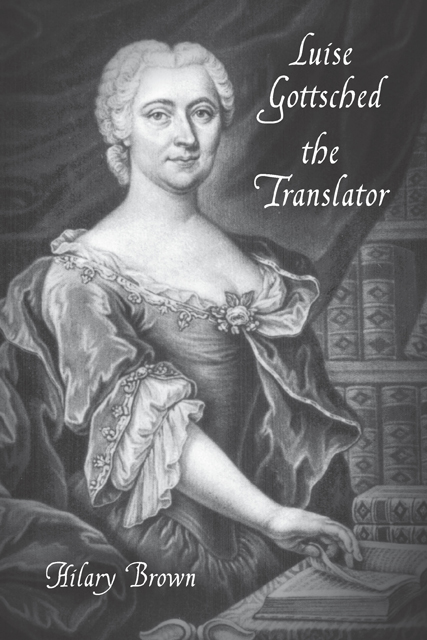Book contents
1 - Gottsched as Female Translator
Published online by Cambridge University Press: 14 February 2023
Summary
Why Did Germany’S Most Famous eighteenth-century woman writer devote most of her life to translation? Was she coerced into it by a domineering husband and forced to sacrifice her literary ambitions to his agenda as many critics would have us believe? Would she have seen translation as a second-rate literary activity more suited to her as a woman than other forms of writing? Here we will attempt to reconstruct the circumstances in which Gottsched produced her translations.
Studies of Gottsched’s sisters in other countries have usually emphasized a link between translation and the gender of the translator. Through the ages translation has been figured as something feminine. The language and metaphors used to discuss it are often highly gendered: translation is spoken about in terms of fidelity, faithfulness, inferiority, and betrayal. Like women themselves, translations have been viewed as untrustworthy, inferior, flawed. In the words of the eminent sixteenth-century translator John Florio, they are always “defective,” hence “reputed females.” Critics have pointed to a correlation between the lowly status of translation (as compared to original writing) and the lowly status of women in society (as compared to men), meaning that translation has been one of the rare forms of literary activity deemed acceptable for the “fair sex” in the past. Women have been able to work on and even publish translations without appearing to trespass on the territory of the (male) author. Susanne Stark, for example, has done a considerable amount of research on female translators in nineteenth-century England such as Harriet Martineau, Martineau’s cousin Sarah Austin, and Marian Evans. Austin, who concentrated on German historical works and travel writing, seems to have favored translation as a suitably modest activity for a woman rather than original writing. Her granddaughter wrote of her in a memoir: “From prudence she confined herself to translating, though she had all the faculties that go to produce original work. But, as she often told me, she feared by publishing anything of her own to expose herself to criticism, and she always considered it improper in a woman to provoke a possible polemic, which generally ends in a manner disagreeable to herself.”
- Type
- Chapter
- Information
- Luise Gottsched the Translator , pp. 9 - 47Publisher: Boydell & BrewerPrint publication year: 2012
- 1
- Cited by



